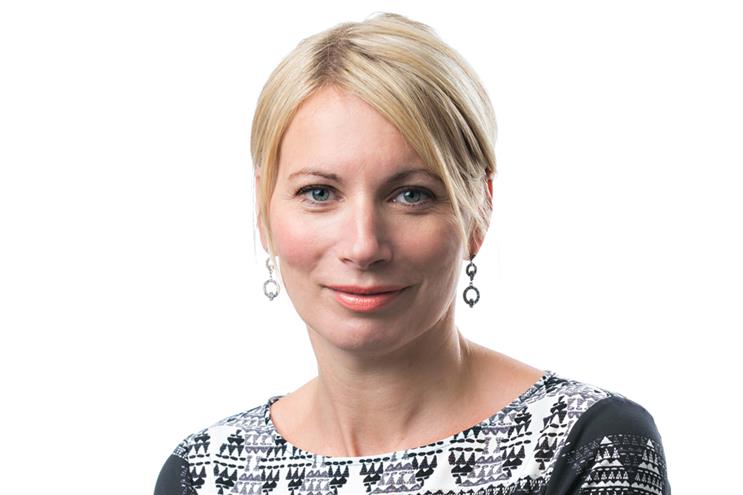The latest available figures disclose that on average women in the UK are paid 18.4% less than men. There are multiple and complex reasons for the gap and understanding what employers and employees can do to eliminate it is crucial.
Earlier this week men and women from across the industry tackled this pressing issue at Wacl's Equal Pay Day event. There were Wacl members, of course, enthused by our club’s newly-ratified mission, along with representatives of the many industry women’s groups we partner with. Thanks to the mix of clients, media owners and agency folk the atmosphere was one of lessons learned, empathy, energy.
It was also a chance raise awareness of Wacl's refreshed raison d’être – "to support, inspire and campaign in myriad ways to accelerate gender equality in our business". This is a significant shift for our club, now in its 95th year, but critical in order to drive meaningful change in the industry we love.
On a personal level, this is a particularly poignant; in the 1960s my mother worked for the Equal Opportunities Commission, the body which helped enforce the 1970 Equal Pay Act. I know how horrified she would be to know that almost 50 years after this landmark legislation, we still have a significant gender pay gap.

The starring roles at our event were given over to a panel (above), three industry supporters with access to the business in different ways. Pavita Cooper (third from left), founder of talent and career insight firm More Difference, is an expert in talent and diversity. Matt Elliott (first from left) is people director at Virgin Money, a company that has been a keen advocate of gender pay gap reporting and very open about the fact they have a gender pay gap of 32%. And Ann Francke (second from left), is chief executive of the Chartered Management Institute, which promotes best practice in management and leadership.
We heard a few shocking stats to give us context. The average annual bonus for a male chief executive in business is £89,000, for female chief executives it’s £15,000. Male managers are 40% more likely to get promoted than females. 61% of women say they’ve witnessed gender bias in pay and rewards in the workplace (Source: CMI/XpertHR, September 2017). And, depressingly, that the global gender gap will take 100 years to close at the current rate of change.
Our panel openly shared their experiences, insights and tips. Here, I’ve selected some highlights along with some examples of how to put these insights into action:
Pavita Cooper, founder of talent and career insight firm More Difference
"Know your worth in the market"
At the senior levels in business, when a job offer is made, men assume that the starting salary offered is an opening offer to be negotiated. Women, on the other hand, simply say "thank you".
Hearing this all too often, Pavita’s advice is to be networked, be out there, make sure you regularly check your worth in the market – and importantly make sure you employer knows it too.
Matt Elliott, people director at Virgin Money
"Know your own data – companies that leave it too late will get burnt."
What should business leaders - not just HR people - be doing to make a difference, especially for larger companies ahead of the April 2018 reporting deadline?
There is a huge value in knowing your own data – whatever size of business you are – so don’t delay in knowing where you are and therefore what you need to do. But do it because it’s the right thing to do – not because you have to – so it’s core to your culture and values. Those companies that leave it too late will get burnt, the sooner you understand and start to tell your story, internally and externally, the better. Those businesses that recognise the shift they need to make will get, and keep, the best talent.
Ann Francke, chief executive of the Chartered Management Institute
"Focus on fixing the small things"
The single biggest shift we can make is in our everyday behaviours, which underline gender bias day in day out.
So focus on fixing the small things, the "broken windows" as Ann puts it. Here, the list of practical hints is endless. The companies that get this right are, like PepsiCo, those that encourage promotion of women into middle and as well as senior management. All of us, women and men, need to be their own best advocates and be willing to call out seemingly innocuous – but unquestionably biased - remarks such as "She’s just had a baby, she won’t be interested in that management position" – when we hear them. Don’t just set up and impose policies, but empower managers to be flexible, to apply smart ways of working and to recognise that making work fit around life makes sense for everyone.
And importantly, there’s hard evidence to prove it boosts the bottom line – a recent McKinsey study shows that if by 2025 the gender gap was closed, this would add $12tn (£9.1tn) to global GDP.
The willingness to embrace these issues is more than just a "nice to have" for any company. From next April, almost 50 years after the Equal Pay Act was made law, businesses with over 250 employees will have to disclose what they pay men and women. So far only about 200 out of about 9,000 have published.
Wherever you work, large or small, independent or corporate and whatever you do, be it chief executive or executive, please be part of the change we need to see.
Pippa Glucklich is UK chief executive of Starcom and vice-president of Wacl


